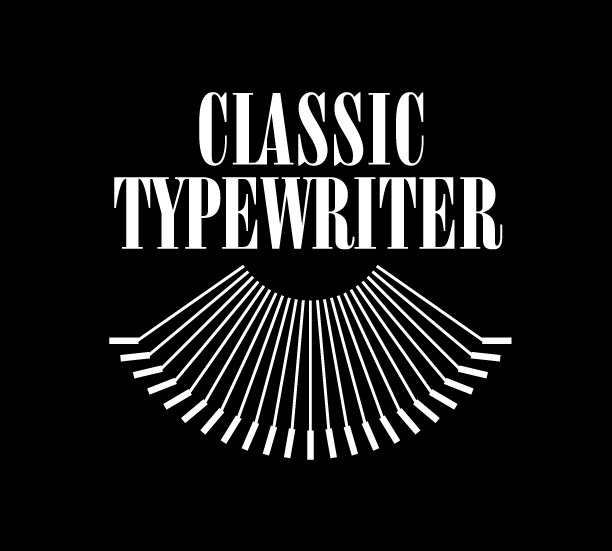How does a typewriter fit into your life?
It takes some time and creativity to find that sweet spot.
I've been experimenting with older writing machines lately: an Oliver from Circa 1919 and an old Hammond Model 12, and a 1930 Underwood Standard model 5 (which is similar to what Henry Miller wrote on in Big Sur).
What older writing machines may lack in practicality for long writing sessions, they make up for in inspiration. They generally require more work, adjustment, maintenance.
Once you get into the 40's, you're pretty much in 'modern' machine territory. I mean the keyboard and the features are essentially everything you're used to in a modern keyboard and functionality. The package becomes more streamlined, and some of the inner components are engineered with more resilience. Again, there is a trade-off: you'll get more plastic components as you move into the 60's and 70's; less metal. In the 80's, most of the bodies were plastic (though some of those machines can still write beautifully).
So for me, the sweet spot for a practical writing machine, the 'golden age', is this place in the 30's - 50's, where machines were still produced with care and designed to last a lifetime. While they lack a few features (some have the cumbersome carriage shift, for instance, or lack a '1' key, and some lack tabs, etc) they will help you crank out a manuscript.
Now, I mostly use typewriters for drafting. Meaning, when I get an idea, and need to focus and lay it down, I write with a typewriter. I don't do much correcting on the drafts: I XXXX over words that are so far gone they become a lost cause. And then I go through and edit with a pen, and retype now and again.
We haven't smoothed out the writing process with typewriters, or how they cross over into the digital world. Some people write on a typewriter, and then have it retyped digitally. You could also retype it and then print it as a facsimile version, or just send the typewritten manuscript off to a publisher and let them sort it out (after making a copy of course!)
The joy for me is in flying through the mindscape on a beautiful machine.
And while I try to narrow my personal collection, I do have a few machines for different niches currently:
A Lettera 32 for traveling, a Noiseless Model 7 for when my daughter is asleep, a big old green IBM Selectric III for when I need more precision in the written word (though I'm still not convinced of an electric machine being superior- in fact it's currently in the shop), and the older, historical curiosities mentioned above.
Carving out your writing life is a joyous process. My ideal, and if you're looking for your first machine you may consider it, is just ONE machine. This is how I wrote for 20 years: ONE Smith Corona Silent. Later I started peppering other machines into the mix, but I confess, I haven't written as much since!
And part of that may be due to running this enterprise, Classic Typewriter, as well as a few others.
Many people post typewritten poetry on Instagram, etc, essentially bridging the worlds. It's not my favorite path, but there is a stream of thought that uses the aesthetic of the typewriter as a marketing tool. Hipsters take this route. It's like that old antique Underwood or Remington (almost working) desktop typewriter in the window of a hip shop.
That's not really the highest use of a writing machine, in my opinion: an historical curiosity or interesting steampunk chunk of potential.
These old things really are WRITING MACHINES. And if the best writers in history could crank out the best books in history on the same machines, what's to stop you?
Hopefully not the digital monstrosity before you.
Remember that Woody Allen wrote every screenplay of his illustrious carreer on an Olympia SM4, missing the cover. He said 'I lost it sometime in the 60's, and haven't thought about it much since'. Many contemporary writers still use writing machines, and more and more are coming to them all the time. If it makes sense, it makes sense, but it takes a while and some ingenuity to carve out your own process. (I still have a huge typewritten novel about the birth of my daughter in a box in my closet... pondering next steps).
I hope this sparks a little inspiration in you. That's all.
Writeon,
Steven Budden
Classic Typewriter Co.
Chapel Hill, NC
classictypewriter.com
